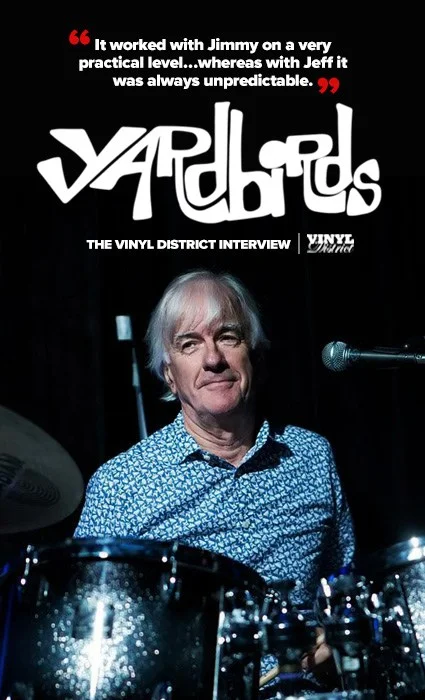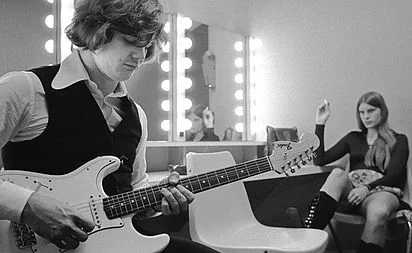There are two schools of thought when it comes to band legacies. The first being—once the original lineup is disbanded, the band is dead forever, its name included. The second being—as long as a founding member or two remain involved, as long as a spark of the band’s core identity somehow remains, the band can go on living and using its name. The Yardbirds are of the second school, and for the past few decades, drummer-composer Jim McCarty has led the blues-rock group that he co-founded in a way that maintains its awe-worthy history and simultaneously insists upon a perpetual newness. The same kind of newness that accompanied the Yardbirds’ nightly rave-ups during their early ‘60s Crawdaddy Club residency, once the Rolling Stones had outgrown the role.
Bobby Whitlock and CoCo Carmel, The TVD Interview
Layla and Other Assorted Love Songs, All Things Must Pass, and Exile on Main St.—three rock and roll albums with several captivating commonalities. All were recorded and released in the early 1970s. All are now widely regarded as some of the most remarkable albums ever made in the history of popular music. All were included on Rolling Stone’s “500 Greatest Albums of All Time” list, too. And all featured singer-keyboardist extraordinaire Bobby Whitlock.
Procol Harum's Gary Brooker, The Observer Interview
Fifty years into a legendary career, most bands are content to rest on their hits, releasing bland blues covers albums or bored-yet-pleasant regurgitations of their earliest work. Procol Harum is not “most bands.”On the 50th anniversary of their debut album, the English prog rock icons continue to remain a singular force in modern rock music, embracing the new-song, best-song philosophy on their first album in 14 years, Novum, out on Friday, April 21, via Eagle Records.
Steve's Blues
Before the Steve Miller Band, there was the Steve Miller Blues Band. Before the Joker, before the Space Cowboy, before Maurice, there was Steve – guitarist extraordinaire, young, beautiful, and insanely talented, with an intense affinity for and knowledge of American Blues and Roots music. This Steve, in conjunction with Jazz at Lincoln Center, has been responsible for shining a bright light on the important historical and artistic roles that Blues guitar has played in American history - and, stemming from that, the role that Blues guitar has played in Steve Miller’s artistic journey. Some musicians seem to move further and further away from their creative roots and influences as they become more and more grounded in their lasting legacy, a legacy that propels itself into the future. But Steve is smarter than them; he always was.
The Storyteller’s Story: Testimony: A Memoir by Robbie Robertson
“He got what he wanted but he lost what he had.” Rock writer Greil Marcus, aficionado-scholar of American music, cultural history, and of The Band, uses this Little Richard quote as a jumping off point to tell the story of American rock ‘n’ roll music in his 1975 work Mystery Train.
Little Richard’s line is the quintessential punishment that often seems to accompany American success stories, like those of Jay Gatsby or Charles Foster Kane. It doesn’t seem to apply to that of Robbie Robertson however, co-founder, main songwriter, and lead guitarist of The Band. (Robertson is Canadian after all.) From a reading of his recently released autobiographical work Testimony: A Memoir, one can conclude that Robertson got a great deal of what he worked for and managed to not lose everything that he began with.





